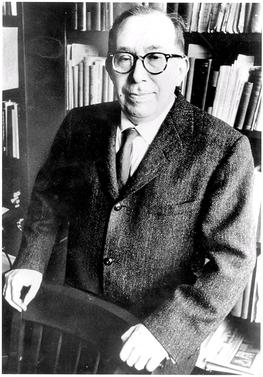Politics is the set of activities that are associated with making decisions in groups, or other forms of power relations among individuals, such as the distribution of resources or status. The branch of social science that studies politics and government is referred to as political science.

Sovereignty can generally be defined as supreme authority - it has to do with the exercise of power or with dominion. Sovereignty entails hierarchy within a state, as well as external autonomy for states. In any state, sovereignty is assigned to the person, body or institution that has the ultimate authority over other people and to change existing laws. In political theory, sovereignty is a substantive term designating supreme legitimate authority over some polity. In international law, sovereignty is the exercise of power by a state. De jure sovereignty refers to the legal right to do so; de facto sovereignty refers to the factual ability to do so. This can become an issue of special concern upon the failure of the usual expectation that de jure and de facto sovereignty exist at the place and time of concern, and reside within the same organization.

The term tribe is used in many different contexts to refer to a category of human social group. The predominant worldwide usage of the term in English is in the discipline of anthropology. Its definition is contested, in part due to conflicting theoretical understandings of social and kinship structures, and also reflecting the problematic application of this concept to extremely diverse human societies. The concept is often contrasted by anthropologists with other social and kinship groups, being hierarchically larger than a lineage or clan, but smaller than a chiefdom, ethnicity, nation or state. These terms are similarly disputed. In some cases tribes have legal recognition and some degree of political autonomy from national or federal government, but this legalistic usage of the term may conflict with anthropological definitions.

International relations (IR) are the interactions among sovereign states. The scientific study of those interactions is also referred to as international studies, international politics, or international affairs. In a broader sense, the study of IR, in addition to multilateral relations, concerns all activities among states—such as war, diplomacy, trade, and foreign policy—as well as relations with and among other international actors, such as intergovernmental organizations (IGOs), international nongovernmental organizations (INGOs), international legal bodies, and multinational corporations (MNCs). There are several schools of thought within IR, of which the most prominent are realism, liberalism and constructivism.

Authority is commonly understood as the legitimate power of a person or group over other people. In a civil state, authority is practiced by the legislative, executive, and judicial branches of government. The term authority has many nuances and distinctions within various academic fields ranging from sociology to political science.
Modernity, a topic in the humanities and social sciences, is both a historical period and the ensemble of particular socio-cultural norms, attitudes and practices that arose in the wake of the Renaissance—in the Age of Reason of 17th-century thought and the 18th-century Enlightenment. Some commentators consider the era of modernity to have ended by 1930, with World War II in 1945, or the 1980s or 1990s; the following era is called postmodernity. The term "contemporary history" is also used to refer to the post-1945 timeframe, without assigning it to either the modern or postmodern era.

Leo Strauss was a 20th century German-American scholar of political philosophy. Born in Germany to Jewish parents, Strauss later emigrated from Germany to the United States. He spent much of his career as a professor of political science at the University of Chicago, where he taught several generations of students and published fifteen books.

Giorgio Agamben is an Italian philosopher best known for his work investigating the concepts of the state of exception, form-of-life and homo sacer. The concept of biopolitics informs many of his writings.

Structural functionalism, or simply functionalism, is "a framework for building theory that sees society as a complex system whose parts work together to promote solidarity and stability".

Carl Schmitt was a German jurist, political theorist, geopolitician and prominent member of the Nazi Party.

George D. Schwab is an American political scientist, editor, Holocaust survivor, and academic. He was the president of the National Committee on American Foreign Policy, an American non-partisan foreign policy think tank. He co-founded the organization in 1974 and served as its president from 1993 to 2015, and was the editor of its bimonthly journal, American Foreign Policy Interests.
Political theology is a term which has been used in discussion of the ways in which theological concepts or ways of thinking relate to politics. The term is often used to denote religious thought about political principled questions. Scholars such as Carl Schmitt, a prominent Nazi jurist and political theorist, who wrote extensively on how to effectively wield political power, used it to denote religious concepts that were secularized and thus became key political concepts. It has often been affiliated with Christianity, but since the 21st century, it has more recently been discussed with relation to other religions.
The history of political thought encompasses the chronology and the substantive and methodological changes of human political thought. The study of the history of political thought represents an intersection of various academic disciplines, such as philosophy, law, history and political science.
A state of exception is a concept introduced in the 1920s by the German philosopher and jurist Carl Schmitt, similar to a state of emergency but based in the sovereign's ability to transcend the rule of law in the name of the public good.
Reinhart Koselleck was a German historian. He is widely considered to be one of the most important historians of the 20th century. He occupied a distinctive position within history, working outside of any pre-established 'school', while making pioneering contributions to conceptual history (Begriffsgeschichte), the epistemology of history, linguistics, the foundations of anthropology of history and social history, and the history of law and government.
Man-made law is law that is made by humans, usually considered in opposition to concepts like natural law or divine law.

Thomas Hobbes’s moral and political philosophy is constructed around the basic premise of social and political order, explaining how humans should live in peace under a sovereign power so as to avoid conflict within the ‘state of nature’. Hobbes’s moral philosophy and political philosophy are intertwined; his moral thought is based around ideas of human nature, which determine the interactions that make up his political philosophy. Hobbes’s moral philosophy therefore provides justification for, and informs, the theories of sovereignty and the state of nature that underpin his political philosophy.
"In Praise of Polytheism (On Monomythical and Polymythical Thinking)" (German: Lob des Polytheismus. Über Monomythie und Polymythie) is an essay by the German philosopher Odo Marquard, which was held as a lecture at the Technical University of Berlin in 1978. It was first published in 1979 in an anthology, and was published again in 1981 in Marquard's book Farewell to Matters of Principle (German: Abschied vom Prinzipiellen).

Hugo Krabbe was a Dutch legal philosopher and writer on public law. Known for his contributions to the theory of sovereignty and the state, he is regarded as a precursor of Hans Kelsen. Also Krabbe identified the state with the law and argued that state law and international law are parts of a single normative system, but contrary to Kelsen he conceived the identity between state and law as the outcome of an evolutionary process. Krabbe maintained that the binding force of the law is founded on the "legal consciousness" of mankind: a normative feeling inherent to human psychology. His work is expressive of the progressive and cosmopolitan ideals of interwar internationalism, and his notion of "sovereignty of law" stirred up much controversy in the legal scholarship of the time.

Carl Schmitt was a German jurist and political philosopher.












